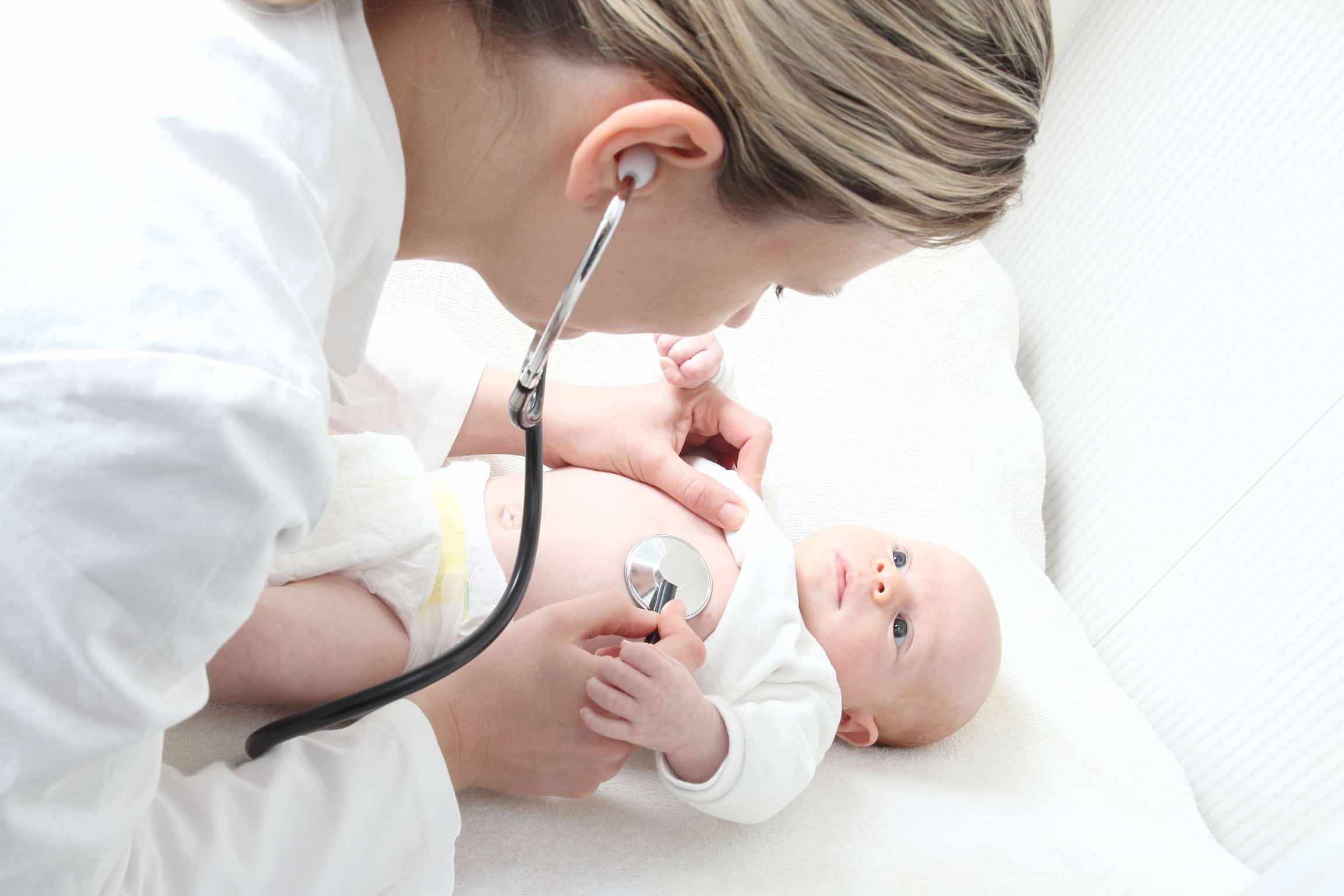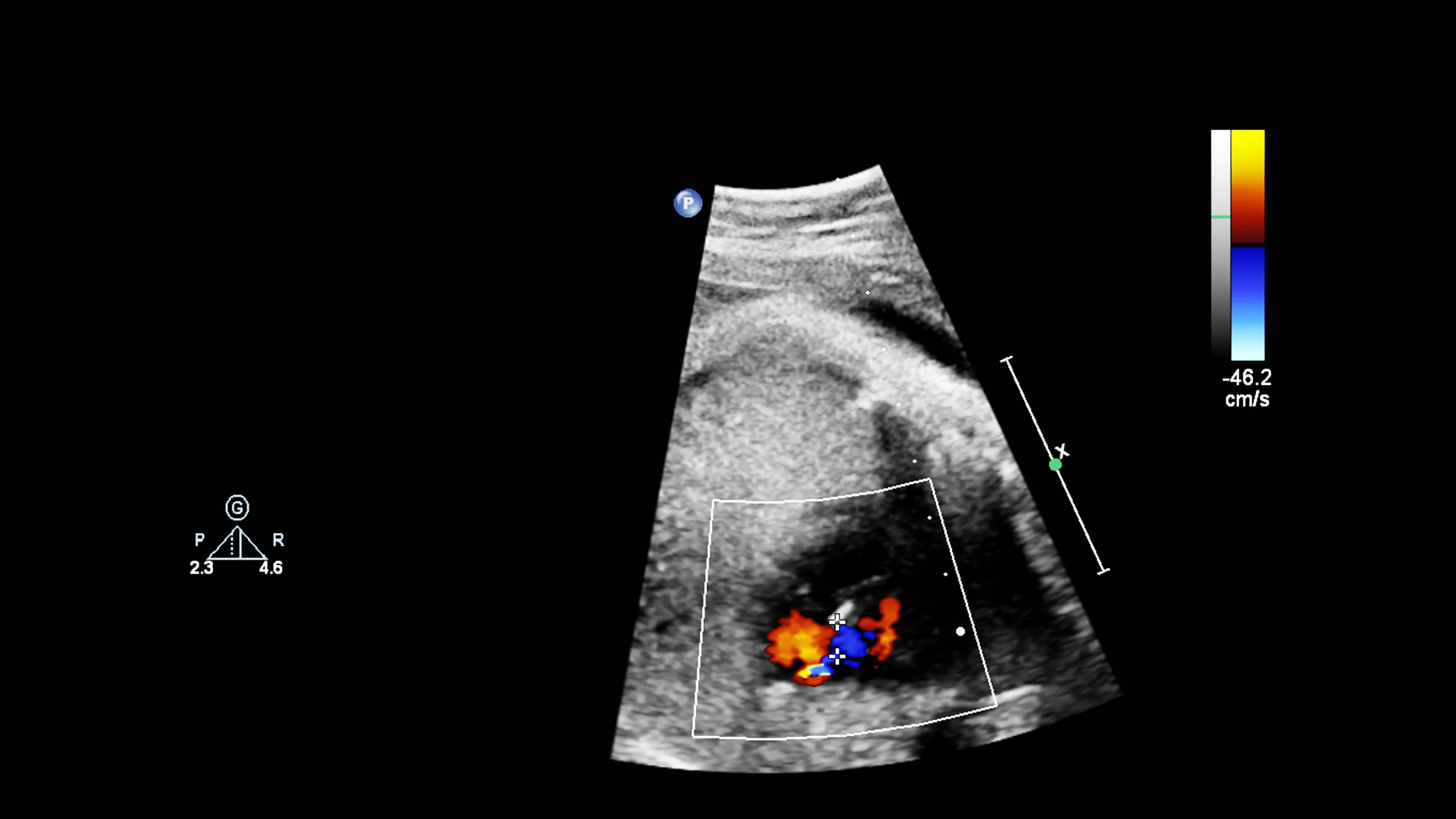Congenital Heart Treatment in Turkey
Healthy Türkiye helps you find the best congenital heart treatment in Turkey at affordable prices and adopts a 360-degree service approach in all areas of health through affiliated hospitals.
- Medical Treatment
- Cardiology Treatment in Turkey
- Carotid Artery Stenting in Turkey
- Cerebrovascular Disease Treatment in Turkey
- Colour-Duplex Sonography in Turkey
- Pericarditis Treatment in Turkey
- Peripheral Artery Disease Treatment in Turkey
- Coronary Heart Disease Treatment in Turkey
- EECP Treatment in Turkey
- Congenital Heart Treatment in Turkey
- Electrophysiology Study in Turkey
- Nuclear Cardiology Test in Turkey
- Pediatric Cardiology Treatment in Turkey
- Rheumatic Heart Disease Treatment in Turkey
- Spiro-Ergometry in Turkey
- Homepage
- Medical Treatment
- Congenital Heart Treatment in Turkey

About Congenital Heart Treatment in Turkey
The success rate of congenital heart treatment in Turkey is very high and it is frequently preferred for foreign patients. Congenital heart defects, or diseases, are issues with the heart’s structure that are present at birth. This might change the normal flow of blood through the heart. Congenital heart defects are the most common type of birth defect, occurring in about one percent of live births in Turkey.
There are many kinds of congenital heart defects. The most common heart defects involve the inside walls of the heart, the valves of the heart, or the large blood vessels that carry blood to and from the heart. Some defects are not complex and require no treatment, while others are critical and require treatment soon after birth. It is often unknown why congenital heart defects occur, but several factors can raise the risk of having a baby born with a heart problem. Some risks include smoking or taking certain drugs during pregnancy, and a family history of congenital heart defects.
Congenital heart problems often are found by a doctor based on symptoms or by newborn or prenatal screenings. Sometimes, the doctor may need to run heart tests to help diagnose you or your baby with a congenital heart defect. Over the last several years in Turkey, the diagnosis and treatment of congenital heart defects have improved. For example, there are better options for treatment, such as drugs and procedures.
Now, many children and adults are living with or have recovered from congenital heart problems. In Turkey, managing your condition by receiving routine follow-up care, taking care of your mental health, and monitoring your condition can all help reduce complications and improve your quality of life.
Healthy Türkiye in Turkey is known for advanced, superior care for patients in the diagnosis, management, and treatment of congenital heart disease. You will appreciate timely appointments and respectful attention to your concerns, all in a positive atmosphere. At Healthy Türkiye, you have access to the region’s most comprehensive, multidisciplinary team of specialists and innovative therapies, including many available only through specialized clinical trials. In every way, we work to demonstrate the utmost in 360 degrees care to those who trust us with their health.

Congenital Heart Treatment Procedure in Turkey
The treatment of congenital heart defects is provided by advanced technology and expert doctors in Turkey. Sensitive approaches are among the reasons why the treatment of congenital heart defects is very successful in Turkey. Many foreign patients from abroad come to Turkey for prenatal and postnatal diagnosis and treatment of congenital heart defects.
Congenital heart defects (also called CHDs) are heart conditions that a baby is born with. These issues can affect the heart’s shape or how it works or both. CHDs can be mild or serious. Congenital heart defects are the most common type of birth defect. Birth defects are structural changes present at birth that can affect almost any area of the body. They can affect how the body looks, works, or both.
Critical congenital heart defects are the most serious defects. Babies with critical CHDs need surgery or other treatment within the first year of birth.
A congenital heart defect (CHD) is usually diagnosed in infancy, or even before birth. But some defects are harder to detect than others and may not be even diagnosed until much later in childhood or even adulthood. If you or your child has a congenital heart defect, it’s important to follow up regularly with the cardiologist. The cardiologist can perform a range of tests to evaluate the heart problem.
Some congenital heart issues do not need any treatment. For example, small holes in the heart generally fix themselves as the child grows up. Sometimes drugs may be used to improve how the heart works or to lower blood pressure. In more serious conditions, heart surgery may be needed. Also, sometimes a baby can have heart surgery while they are still in the womb. If the defects are very serious, a heart transplant might be the only option.
If you or your baby have a suspected congenital heart defect, Healthy Türkiye will detect it in the most professional way, and if you have these defects, it will plan your treatment at the most affordable price and in the most accurate way.
Congenital Heart Defects Types
Congenital heart defects can be anywhere from simple to complex. Some can be watched by the doctor and managed with or without medicines. In other cases can will need surgery. Some surgeries happen in the first few hours of birth. Congenital heart defects are classified into several categories. It helps understand the problems the baby will experience.
Aortic valve stenosis: This is when the opening of the valve (the movable part that allows blood to flow) of the aorta is narrowed because of problems with the valve. This type of defect makes up about 5% of all diagnosed heart defects. Because this defect is often not discovered, it may likely be the most common heart defect.
Atrial septal defect: It is about 6-10% of congenital heart disease. This is a hole in the wall that separates two arteries.
Coarctation of the aorta: It is a narrowing of the interior space of the aorta in a localized area. This accounts for 7-8% percent of congenital heart defects.
Complete or partial atrioventricular canal defect: In this situation, there is a hole in the wall that separates either the atrial chambers of the heart or the ventricles at the level of the valves. It makes up about 5% of congenital heart disease. It often is accompanied by abnormalities in the mitral or tricuspid valve.
Patent ductus arteriosus: In a developing fetus, a duct connects the lung artery with the aorta. It takes blood directly from the right chamber of the heart to the aorta, bypassing the lungs. This is normal because the fetus is receiving oxygen from its mother’s blood circulation. About the time a baby is born, this duct closes because the baby will breathe using its own lungs at birth. If the duct doesn’t close, a patent ductus arteriosus defect occurs. As many as 80% of infants who are born two or more months early have this defect.
Persistent truncus arteriousus: This is the defect in which a single vessel does not divide to form the aorta and the artery that leads to the lungs in a developing fetus. The arteries that go to the lungs branch off from the aorta instead of coming from the right ventricle of the heart.
Pulmonic valve stenosis: This is an abnormality of the lung valve, which limits the size of the opening of the valve. Pulmonic stenosis of varying degrees constitutes about 10% of congenital heart disease.
Tetralogy of Fallot: There is a blockage out of the right chamber and a defect in the wall between the chambers.Transposition of the great arteries: This is a defect where the aorta comes from the right ventricle and the artery to the lungs comes from the left ventricle. This situation is the opposite of a normal heart. As a result, in this case, the body doesn’t get enough oxygen. This condition accounts for 5-7% of all congenital heart defects.
Underdeveloped left ventricle syndrome: Ventricular septal defects are one or more openings in the wall separating the ventricles of the heart. It may close up on its own in infancy or it may require surgery to close. It may also lead to heart failure or be accompanied by disease in the blood vessels of the lungs.
Healthy Türkiye’s doctors can manage all types of congenital heart diseases, in Turkey. They range from less complicated conditions, such as holes within the heart, to more complex defects, including obstructions in the heart, the transposition of major arteries, and issues that result in a person having only one pumping chamber in the heart.
Causes of Congenital Heart Defects
Heart defects can begin to develop in the first 6 weeks of pregnancy when the heart is forming. Various things may increase the chance that your baby has a congenital heart defect.
Changes in genes or chromosomes: Some babies have heart defects because of changes in their chromosomes or genes. Chromosomes hold genes. Genes are part of the body’s cells that store instructions for the way the body grows and works. Genes are passed from parents to children. Certain gene changes (mutations) are linked to heart defects. At least 15% of CHDs are linked to genetic or chromosomal conditions.
Health conditions in mom: Having some conditions may increase your risk of having a baby with congenital heart defects.
Lupus: Lupus is an autoimmune disease. This is a health condition that happens when antibodies attack healthy tissue by mistake. Lupus can damage the joints, skin, kidneys, heart, lungs, and other body areas.
Maternal phenylketonuria (PKU): PKU is a condition in which the body can’t break down an amino acid called phenylalanine. Without treatment, phenylalanine builds up in the blood and causes health issues. Most pregnant women with PKU can have healthy babies if they follow a special meal plan that’s low in phenylalanine.
Obesity: If you have an excess amount of body fat, and your body mass index (BMI) is 30 or higher, you’re obese.
Diabetes (type 1 or type 2 diabetes): This is a medical condition in which your body has too much sugar in your blood. Diabetes can damage organs in your body, including blood vessels, nerves, eyes, and kidneys.
Rubella: This is an infection that causes mild flu-like signs and rash on the skin. Having rubella during pregnancy may increase your baby’s risk for a CHD.
Medicines you take: Taking certain drugs may increase your baby’s risk of having a congenital heart defect. Tell your doctor about any medicine you take before you try to get pregnant. This includes prescription medicines, over-the-counter medicine, herbal products, and supplements. ACE inhibitors, isotretinoin, lithium, statins, and thalidomide is examples of medicines that may increase your baby’s risk of having CHD.
Lifestyle and environment: Some things in your life and environment may increase your chances of having a baby with CHD. If you’re pregnant, trying to get pregnant, or think you might be pregnant, don’t drink alcohol. Besides, women who smoke anytime during the month before pregnancy or during the first 3 months of pregnancy are more likely to have a baby with a CHD than women who don’t smoke.
If you smoke or drink alcohol, ask your Healthy Türkiye healthcare provider about getting help to quit.
Diagnosis for Congenital Heart Treatment in Turkey
Routine ultrasound scans during pregnancy can give information about the structure of the heart. If the scan indicates a problem, fetal echocardiography can help show a congenital heart defect. This is like an ultrasound scan, but it can collect more specific and detailed information about the heart’s chambers.
After birth, a doctor may suspect a diagnosis of a congenital heart defect if a child has growth delays or changes in the color of the lips, tongue, or fingernails. Also, the care provider may hear a heart sound (murmur) while listening to the child’s heart with a stethoscope. Most heart murmurs are innocent. However, some murmurs might be caused by blood flow changes to and from the heart.
While it is sometimes difficult to diagnose CHD early, it is important to treat and act consciously. Tests to diagnose a congenital heart defect are varied. Although their methods are different, they all aim to find out if the heart is working properly. Tests to diagnose a congenital heart defect include:
Pulse oximetry: A sensor placed on the fingertip measures and records the amount of oxygen in the blood. Too little oxygen may be a sign of a heart problem.
Electrocardiogram (ECG or EKG): This noninvasive test measures and records the electrical activity of the heart. Sticky patches with sensors that call electrodes are placed on the chest. Wires connect the patches to a computer, which displays results. An ECG can help diagnose irregular heart rhythms.
Echocardiogram: An echocardiogram uses sound waves to create images of the heart in motion. An echocardiogram shows how blood moves through the heart and heart valves. If this test is done on a baby before birth, it’s called a fetal echocardiogram.
Chest X-ray: A chest X-ray test shows the condition of the heart and lungs. Also, it can show if the heart is enlarged, or if the lungs contain extra blood or other fluid. These could be symptoms of heart failure.
Cardiac catheterization: In this test, a thin, flexible tube is inserted into a blood vessel, usually in the groin area, and guided to the heart. Catheterization provides detailed information on blood flow and how the heart works.
Heart magnetic resonance imaging (MRI): A heart MRI may be done to diagnose congenital heart defects in adolescents and adults. A heart MRI creates 3D images of the heart, which allows for accurate measurement of the heart chambers.

We Care About Your Health
Healthy Türkiye provides the best for your health and comfort. You will feel privileged with us.
7/24 Quality Personal Assistance Throughout Your Journey
Customizable for You All-Inclusive Packages
Get the Right Advice for your Health
Types of Congenital Heart Treatment in Turkey
In Turkey, congenital heart treatment in children depends on the specific type of heart problem and how severe it is. Sometimes, a congenital heart defect may have no long-term effect on a child’s health. Other congenital heart defects, such as a small hole in the heart, may close as child ages. Serious congenital heart problems require treatment soon after they’re diagnosed. CHD treatment in Turkey may involve medications, heart procedures or surgeries, or a heart transplant.
Medications: Medications may be given to treat signs or complications of a congenital heart defect. They may be used alone or with surgery. Medications for congenital heart defects include blood pressure drugs and heart rhythm drugs.
Surgery and other procedures: If your child has a severe congenital heart defect, a heart procedure or surgery can be recommended. Heart procedures and surgeries are done to treat congenital heart defects include:
Cardiac catheterization: Some congenital heart defects can be repaired using thin, flexible catheters without the need for open heart surgery. Cardiac catheterization may be used to fix holes in the heart or areas of narrowing. Some catheter procedures have to be done in steps over a period of years.
Heart surgery: A child may need open-heart surgery or minimally invasive heart surgery to repair the congenital heart defect. The type of heart surgery depends on the kind of defect.
Heart transplant: If a serious heart defect can not be repaired, a heart transplant may be needed.
Fetal cardiac intervention: Rarely, if a serious defect is diagnosed before birth, an operation can be done during pregnancy to correct the problem or help reduce complications of the defect as the child grows. Fetal cardiac intervention is rarely done and is only possible in very specific circumstances.
Some people with congenital heart defects need many procedures and surgeries throughout life. After congenital heart surgery, a child will need regular checkups by a cardiologist.
Living with a Congenital Heart Defect
As medical care and congenital heart treatment in Turkey have advanced, infants with CHDs are living longer and healthier lives. Many people with congenital heart defects lead independent lives with little or no difficulty. Rarely, some people might develop disabilities over time. Some people with congenital heart defects have genetic problems or other health conditions that increase their risk for disability.
People with CHD can develop other health problems over time, depending on their specific heart problems, the number of heart defects they have, and the severity of their heart defects. Some other health problems that might develop include irregular heartbeat (arrhythmias), increased risk of infection in the heart muscle (infective endocarditis), or weakness in the heart (cardiomyopathy).
People with CHD can need routine check-ups with a cardiologist to stay as healthy as possible. It is important for people with a congenital heart defect to visit their doctor on a regular basis and discuss their health, including their specific heart condition, with their doctor. They can also need treatment from time to time over the years.
Children might need to avoid some strenuous physical activities as they grow up. It is important for people with congenital heart disease to avoid infections since this can be very dangerous for their hearts. See a doctor directly if your child develops any sign of infection, such as a chest infection. You should know how important it is to keep your teeth and mouth clean because bacteria can spread from the mouth to the heart. Also, it is very important for your child to have all their vaccinations.

2026 Cost of Congenital Heart Treatment in Turkey
All types of medical attention like congenital heart treatment are very affordable in Turkey. Many factors are also included in determining the cost of congenital heart treatment in Turkey. Your process with Healthy Türkiye will last from the time you decide to have a congenital heart treatment in Turkey until the time you are fully recovered even if you are back home. The exact congenital heart treatment procedure cost in Turkey depends on the type of operation involved.
The cost of congenital heart treatment in Turkey does not demonstrate many variations in 2022. Compared to costs in developed countries like the United States or the UK, congenital heart treatment costs in Turkey are relatively low. So, it’s no wonder patients from across the world visit Turkey for congenital heart treatment procedures. However, the price is not the only factor affecting choices. We suggest looking for hospitals that are safe and have congenital heart treatment reviews on Google. When people decide to seek medical help for congenital heart treatment, they will not only have had low-cost procedures in Turkey, but also the safest and best treatment.
At clinics or hospitals contracted with Healthy Türkiye, patients will receive the best congenital heart treatment from specialist doctors in Turkey at affordable rates. Healthy Türkiye teams to provide medical attention to congenital heart treatment procedures and high-quality treatment to patients at a minimum cost. When you contact Healthy Türkiye assistants, you can get free information about the cost of congenital heart treatment in Turkey and what this cost covers.
The cost of congenital heart treatment in the UK is between £50.000-£100.000.
The cost of a breast lift in the USA is between $5.000-$10.000.
The cost of congenital heart treatment in Turkey is $10.000.
Price of Congenital Heart Treatment in the UK?
Price of Congenital Heart Treatment in the USA?
Price of Congenital Heart Treatment in Turkey?

Why Choose Turkey for Congenital Heart Treatment?
The cost of medical treatment is one of the major reasons why so many patients come to Turkey. The same goes for the cost of congenital heart treatment in Turkey. It is highly affordable treatment in the country, especially in comparison to other advanced countries.
There is a low cost of congenital heart treatment in Turkey despite the fact that the country offers the highest quality of medical treatment from the hands of the best medical experts available in the world. Turkish doctors and surgeons who handle congenital heart defect patients are highly experienced in this field and are mostly trained and educated from abroad. They hold years of experience in handling the simplest to the most complex cases related to congenital heart defects.
Additionally, the success rate of the surgeries conducted in Turkey for the treatment of congenital heart is quite high as compared to other countries. This is why many patients prefer to come to Turkey to seek medical care. Besides, patients do not have to wait in long queues or waiting lists before undergoing congenital heart treatment in Turkey.
Healthy Türkiye offers the top treatment and tour packages for international patients coming to Turkey. With its unique cost control formula, we help international patients to get the best quality of medical services and treatment facilities to the patients, in Turkey. We, as Healthy Türkiye, tie up with various hospitals and medical experts covering all forms of health modern, holistic, and alternative treatment.
All-Inclusive Packages for Congenital Heart Treatment in Turkey
Healthy Türkiye offers all-inclusive packages for congenital heart treatment in Turkey at much lower prices. Extremely professional and experienced doctors and technicians carry out high-quality congenital heart treatment. The cost of congenital heart treatment in European countries can be quite expensive, especially in the UK. Healthy Türkiye provides cheap all-inclusive packages for a long and short stay of congenital heart treatment in Turkey. Because of many factors, we can provide you with many opportunities for your congenital heart treatment in Turkey.
The price of congenital heart treatment differs from other countries due to medical fees, staff labor prices, exchange rates, and market competition. You can save much more in congenital heart treatment compared to other countries in Turkey. When you purchase a congenital heart treatment all-inclusive package with Healthy Türkiye our healthcare team will present hotels for you to choose from. In congenital heart treatment travel, you will have the price of your stay included in the all-inclusive package cost.
In Turkey, when you purchase congenital heart treatment all-inclusive packages through Healthy Türkiye, you will always receive VIP transfers. These are provided by Healthy Türkiye, which is contracted with highly qualified hospitals for congenital heart treatment in Turkey. Healthy Türkiye teams will organize everything about congenital heart treatment for you and have you picked up from the airport and safely brought to your accommodation. Once settled in the hotel, you will be transferred to and from the clinic or hospital for congenital heart treatment. After your congenital heart treatment has been successfully completed, the transfer team will return you to the airport in time for your flight home. In Turkey, all packages of congenital heart treatment can be arranged upon request, which relaxes the minds of our patients. You can reach out Healthy Türkiye for everything you need to know about congenital heart treatment in Turkey.
The Best Hospitals in Turkey for Congenital Heart Treatment
The best hospitals in Turkey for congenital heart treatment are Healthy Türkiye, Memorial Hospital, Acıbadem International Hospital, and Medicalpark Hospital. These hospitals attract patients from all over the world seeking congenital heart treatment due to their affordable prices and high success rates.
Best Doctors and Surgeons in Turkey for Congenital Heart Treatment
The best doctors and surgeons in Turkey for congenital heart treatment are highly skilled professionals who offer specialized care and advanced procedures. With their expertise and state-of-the-art techniques, these specialists ensure that patients receive high-quality congenital heart treatment and achieve optimal health results.

Frequently Asked Questions
Take 400 micrograms of folic acid supplement a day during the first trimester (first 12-15 weeks) of your pregnancy, this lowers your risk of giving birth to a child with congenital heart disease, as well as several other types of birth defects.
As medical care and treatment have improved, babies and children with congenital heart defects are living longer and healthier lives. Ongoing, appropriate medical care may help children and adults with CHD live as healthily as possible.
There is no cure for congenital heart disease. Many patients have surgeries to repair their hearts, however, they are not cured. There can be long-term effects of heart surgery, such as abnormal heartbeats. A cardiologist can usually detect problems with your heart before you notice any symptoms.
The most common congenital heart defect is a bicuspid aortic valve. The aortic valve opens and shuts to allow blood to flow from the heart to the aorta and the aorta is the major blood vessel bringing oxygen-rich blood to the body.
If the arteries that supply blood to your heart become blocked, it may lead to a heart attack. If the arteries that supply blood to your brain are affected it may cause a stroke.
CHD can contribute to other health concerns later in life. Complications can occur years after a congenital heart defect is treated.
Heart failure, endocarditis, arrhythmias, and pulmonary hypertension are the most common long-term complications of adults with congenital heart disease. Adults with congenital heart disease benefit from tertiary expert care and early recognition of long-term complications and time management are essential.
